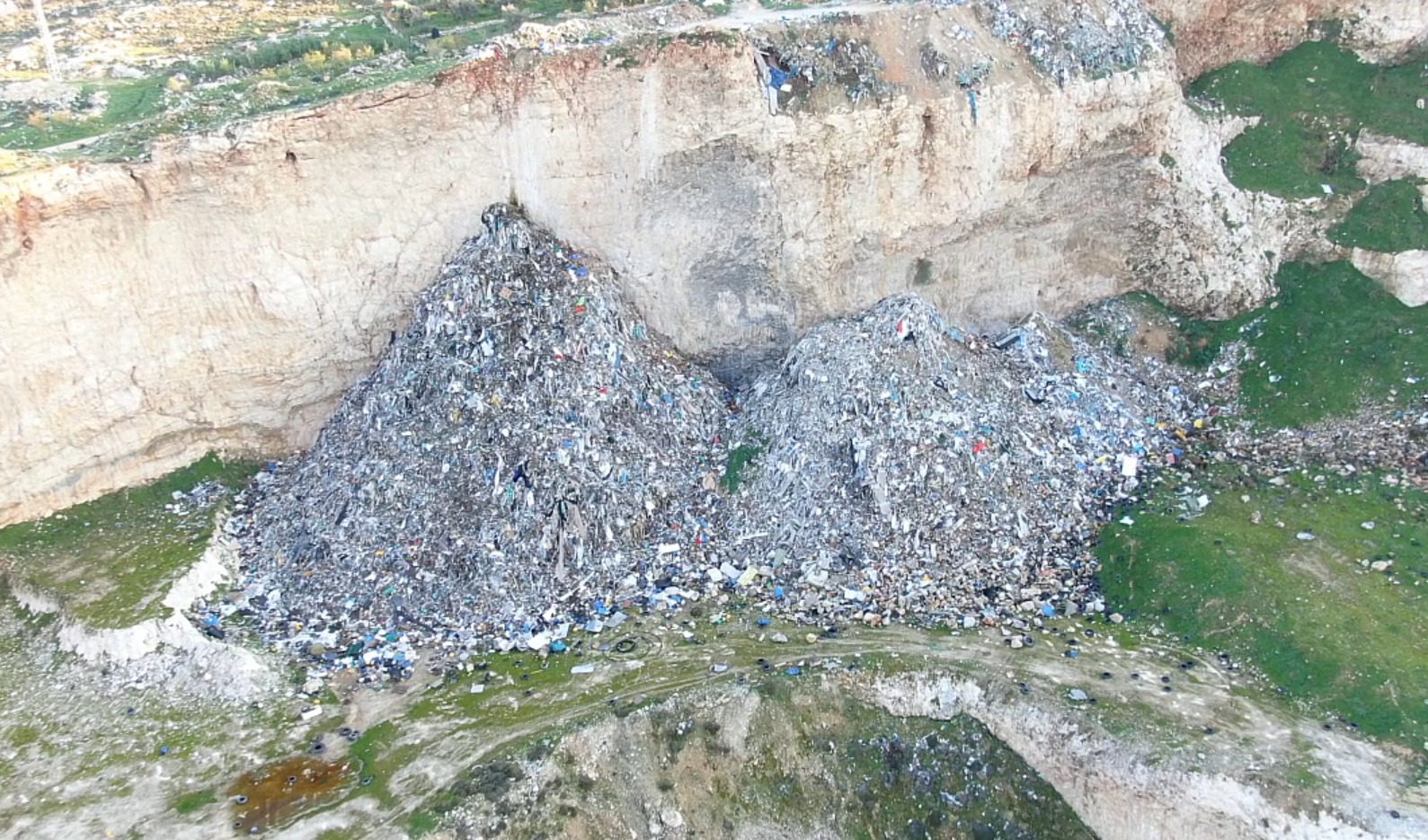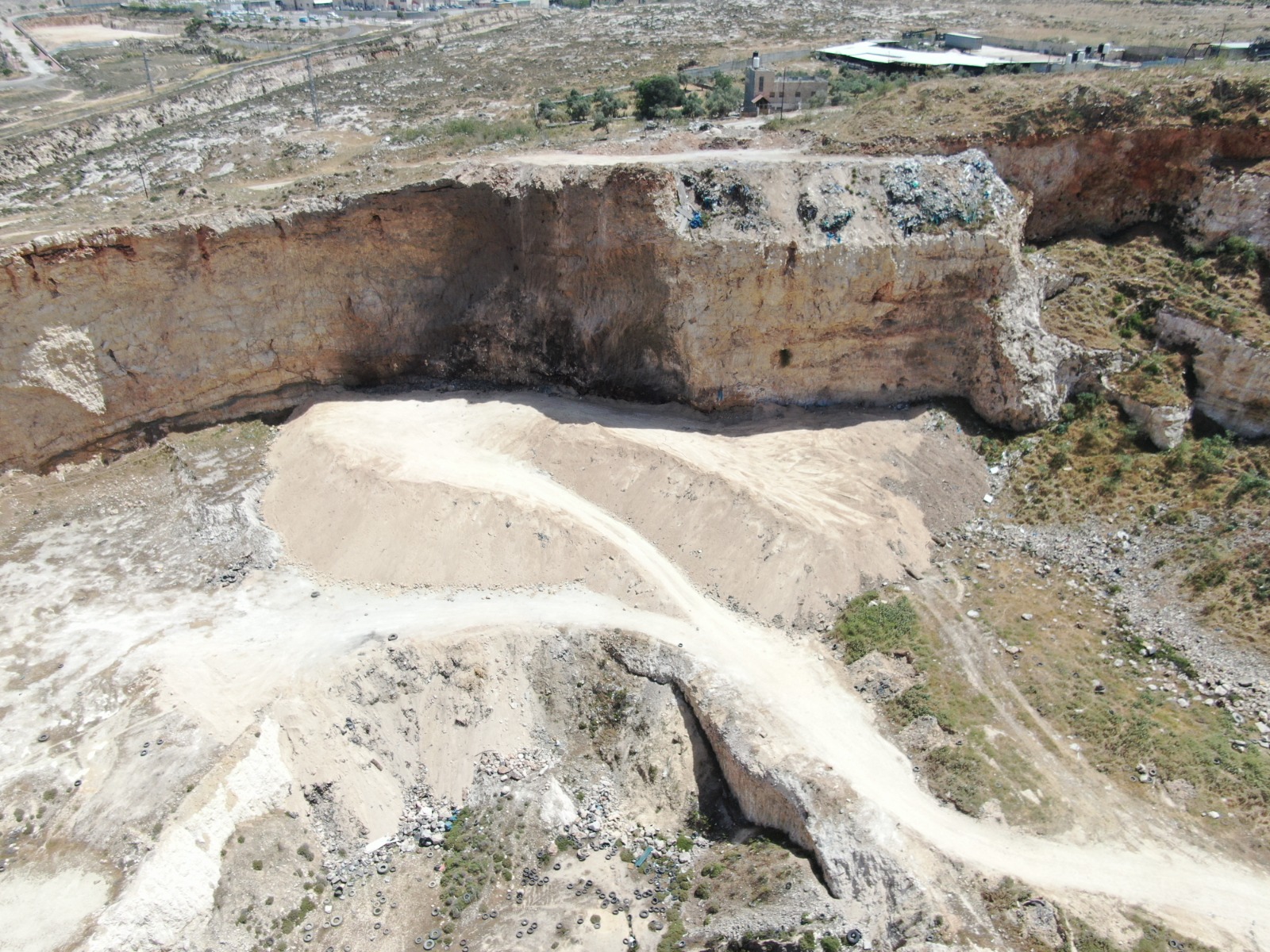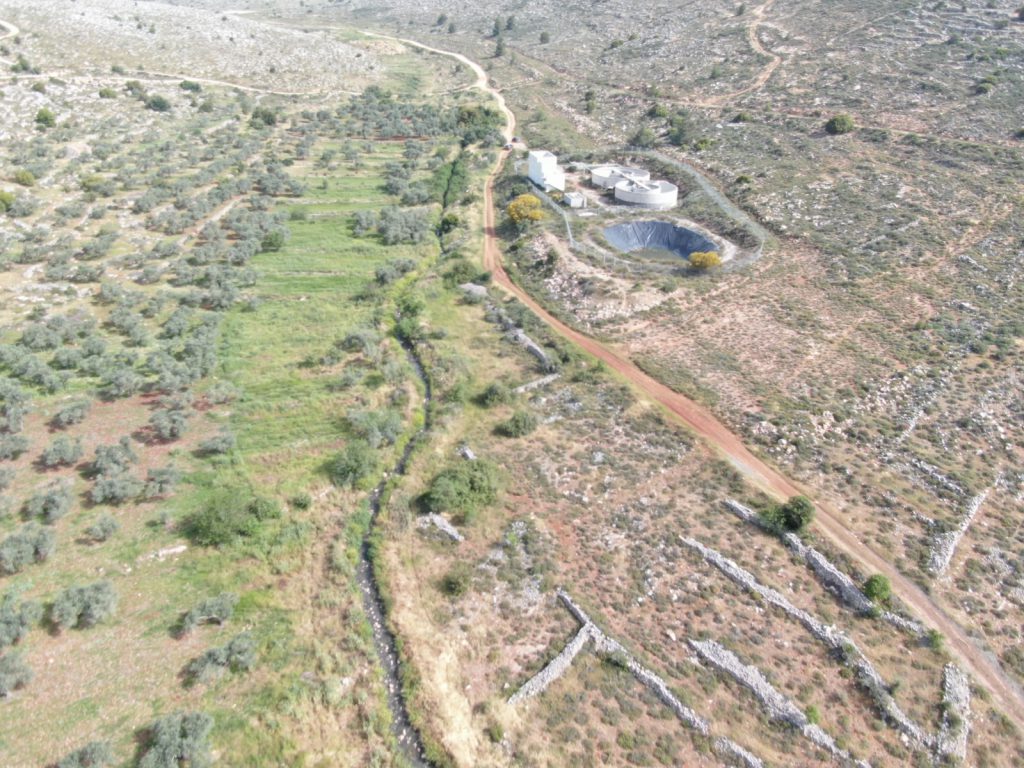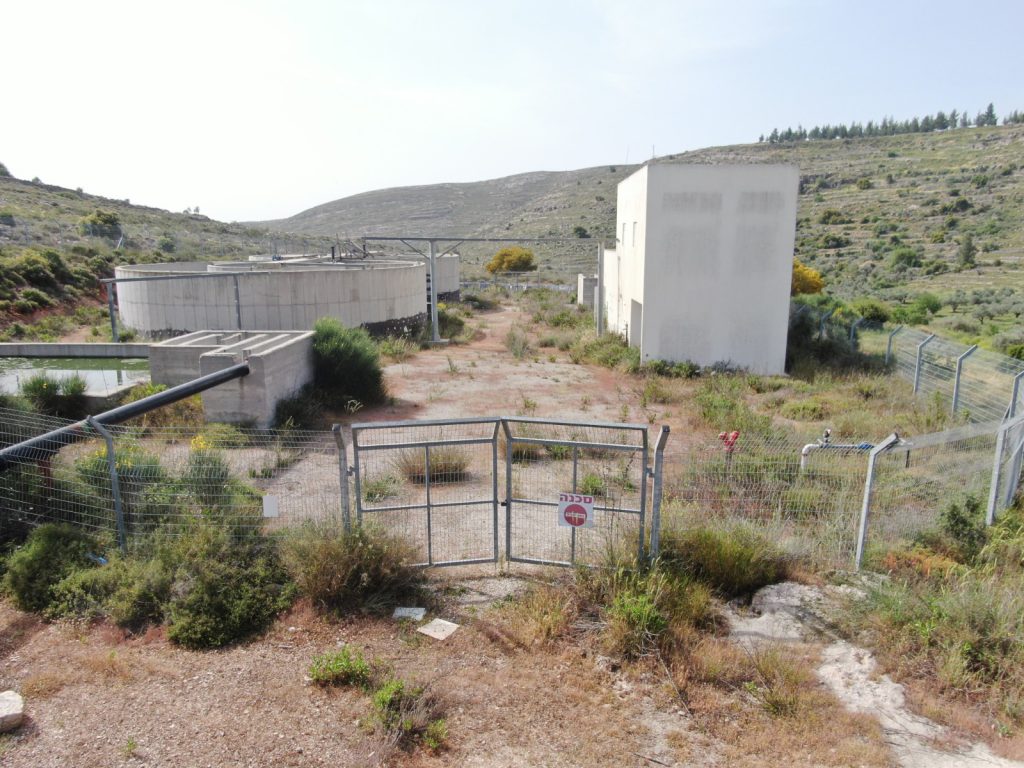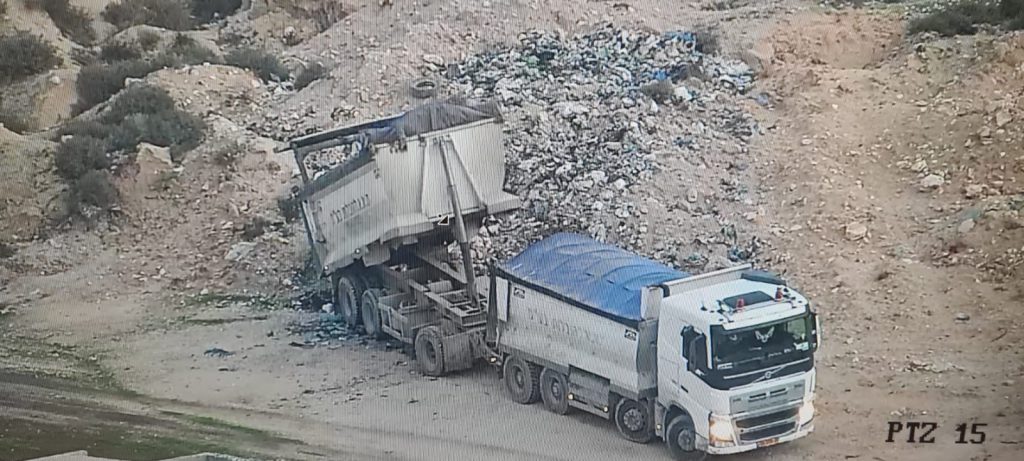
After a seemingly endless stream of correspondence and complaints by Regavim, the Civil Administration cleared an illegal garbage dump in the Binyamin region. But the Regavim Movement discovered that the dumping site was cleared and rehabilitated at the expense of the Israeli taxpayer, and not a single one of the criminals arrested for dumping the trash were charged or tried – even when they resumed dumping at the very same spot only weeks later. Regavim has petitioned the High Court of Justice.
In 2019, Regavim’s field staff noticed that criminals had taken over the open space near the Psagot Junction in the Binyamin region of Area C (the portion of Judea and Samaria under full Israeli jurisdiction), and used it to dump and burn massive quantities of trash. With no oversight, inspection or permits and in complete disregard of the most basic criteria for waste disposal and environmental protection, this illegal dumping ground was causing unspeakable, irreparable damage to the soil and water, and creating a health hazard to plant, animal and human life in the vicinity that was affecting all residents of the area – Jews and Arabs alike.
Regavim complained to the authorities – repeatedly – and demanded oversight and enforcement at the site, restoration of the environment and prosecution of those responsible for this criminal abuse. The authorities eventually announced that they had apprehended and impounded several dump trucks that were unloading trash – meaning that the identity of the offenders was known and duly recorded. At the end of 2021, the Civil Administration, which is responsible for law enforcement in Area C, announced that it had completed clean-up and restoration of the site – at a cost of NIS 370,098. The project was funded from the Civil Administration’s budget, while the official announcement also noted that “the Civil Administration has no information regarding the identity of the perpetrators.”
Surprisingly – or not – only a few short weeks later, in February 2022, dump trucks were back at work, unloading tons of garbage at the very same site and rebuilding the massive mountain of trash.
Regavim decided to take the matter to the High Court of Justice. The petition they submitted claimed that the Civil Administration’s conduct in this matter violates both the law and the most basic standards of good governance, and that it is unreasonable to force the law-abiding public to bear costs of hundreds of thousands of Shekels to remove the trash while the offenders, whose identity is no secret, have not been charged or tried for this crime – and are given a free hand to continue to violate the ecosystem and the law, causing irreparable harm to the environment.
Attorney Yael Cinnamon, who is representing Regavim in this petition, noted: “The Civil Administration’s policy of negligence that allows criminals to commit offenses with impunity, without being required to pay the price for their crimes or for the damage they have caused, has taken root, and criminals have learned to take full advantage of the law enforcement void and the Civil Administration’s reticence in order to expand their dangerous and illegal activities. The re-activation of the illegal dump in Binyamin, which was cleared and restored only a few months ago, is a case in point.”
Moshe Shmueli, Regavim’s Field Coordinator for Judea and Samaria, added: “We are engaged in a protracted battle against the illegal dumping site near Psagot. When we finally managed to force the Civil Administration to shut down the dump and do what had to be done to rehabilitate the surrounding environment, we were shocked to discover that the costs were funded by the public. Even worse, it took almost no time at all for the dumping to resume. This is not the only illegal dumping site in the area, either. The criminals know how to use the chaos and inaction of the authorities to their advantage, just as they do with the lack of enforcement against illegal construction.”
Yisrael Gantz, Head of the Binyamin Regional Council: “The failure to enforce the law is strangling the environment. Sadly, there is no deterrence against Arab criminals or the Palestinian Authority. When there is no serious enforcement, there is a free for all, and it takes a toll on our health. Enforcement is currently only a drop in the ocean – it’s nowhere near enough to stop the rampant criminality.”
“The fact that the hard-earned tax money of the municipalities and citizens of Judea and Samaria is collected by the Civil Administration and used to tend to illegal Arab dumping sites, rather than to develop infrastructure and environmental projects for local communities, is nothing short of scandalous.”
